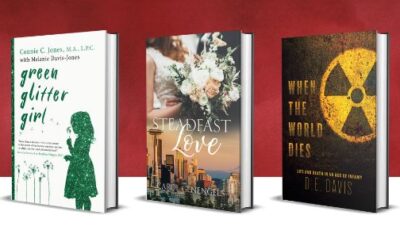When you start submitting your book to agents, publishers, or editors, they will all ask the same question: what is your word count?
As a new writer, this may seem an odd question. After all, you may know off the top of your head that your book is 250 pages long. But you may not know how many words that is. And you may be wondering why it matters–why are they asking for word count instead of page count?
The answer is simple: the number of words is a much more stable length marker than anything else. When measuring in pages, how you’ve laid out the page—font size, margin size, line spacing, font. choice, keep rules, for example—determines how many pages a document is. But a 50,000-word document will always be 50,000 words long.
This helps publishing professionals know at a glance how long your manuscript is, and lets them assess quickly how much work may need to be done.
For example, if you’ve written a biography and you wrote “the end” at the 20,000 word mark, they’re likely to ask you to go back and add more detail, add more history, add more stories. A 20,000 word book is not a very long book at all.
On the contrary, if you’re writing a fantasy novel and are 500,000 words in and counting, you haven’t written a fantasy novel. You’ve written three and it’s time to split it into multiple books or remove unnecessary segments.
There are many reasons the publishing industry cares about manuscript length:
- Readers have certain expectations for certain genres. You give them too long or too short of a book, and they’ll be disappointed.
- Production costs for a book. Paper isn’t cheap, and time on the printer is valuable. The more materials (more paper, ink, and glue) it takes to print a book, the more expensive that book will be. (This is especially true with the rise of Print on Demand publishing, or POD. To print one copy is more expensive per unit than to print 1000 copies.)
- Pre-production costs for a book. Editors often get paid a certain amount per word. If your book is long, editorial work will cost more than if your book is short. Knowing the word count going in can help the publisher budget appropriately for the pre-production work required on a book.
So what are the ideal word counts per genre? And why do they change?
Genre fiction (romance and mystery) is often highly formulaic in the plot line. Readers expect certain plot points to occur at certain points throughout the book, and they like to feel like they’re making progress as pages go by. These books are also more likely to be taken on trips and read over a weekend by people with less free time on their hands.
Other genres, like fantasy or science fiction, require more space in the beginning of the story to establish the reader in the world. Writers tend to call this world-building. Because the setting is unfamiliar, and there are often ensemble casts in a genre heavily dependent on strong descriptions, more words are often needed.
Many publishers also have limitations on what they publish. For example, many will publish trade fiction and nonfiction, but not textbooks or novellas. This is also where word counts come in. In fiction, anything shorter than 50,000 words is considered a novella, which may disqualify you from publishing with certain companies.
How long should your book be?
The following is a list of our ideal ranges for different genres.
Literary Fiction: 60-100,000 words
Historical Fiction: 85-100,000 words
Mystery/Crime/Thriller: 65-90,000 words
Fantasy: 90-110,000 words
Science Fiction: 80-110,000 words
Young Adult Fiction: 45-80,000 words
Middle Grade Fiction: 30-70,000 words
General Nonfiction: 40-80,000 words
Memoir/Biography: 70-80,000 words
Business: 50-65,000 words
